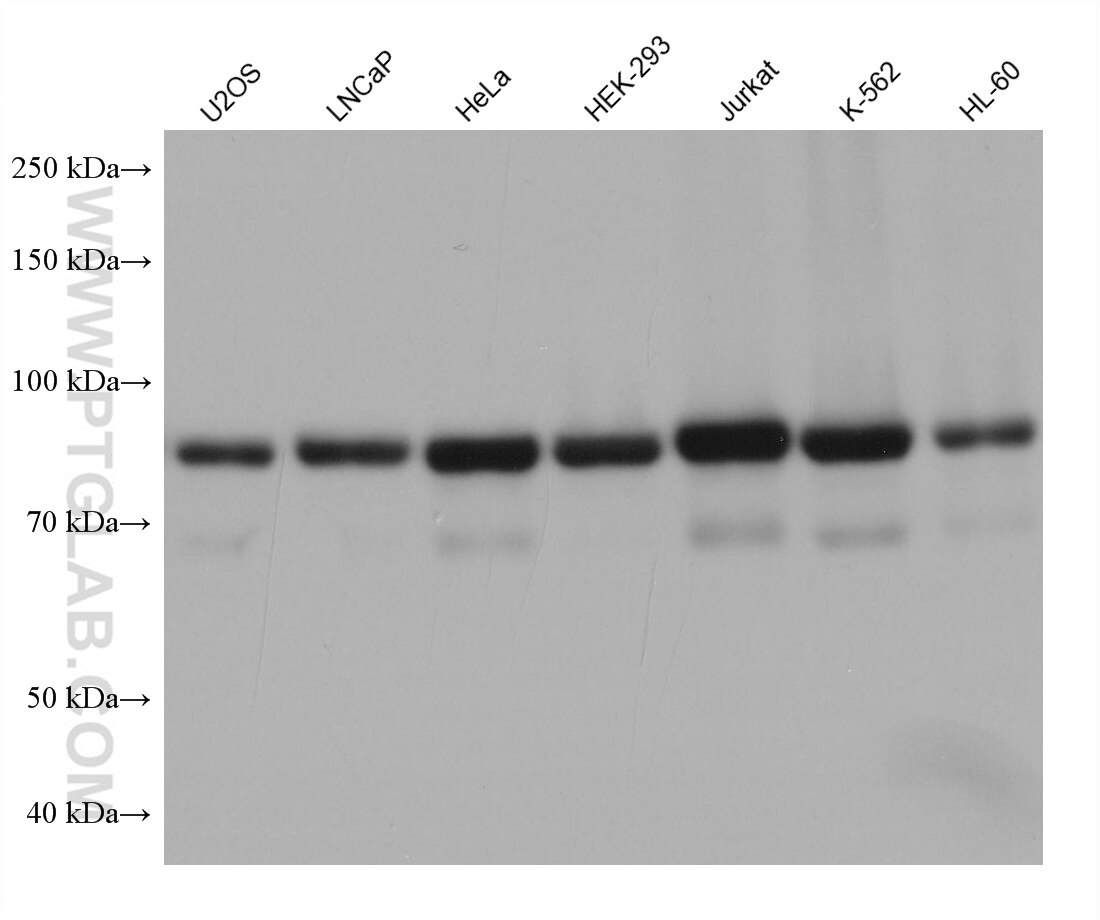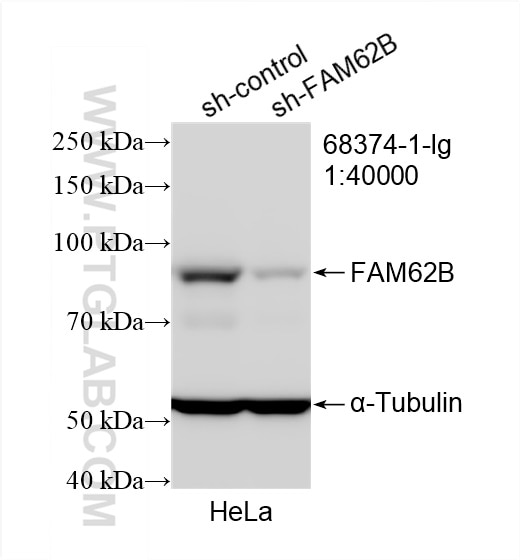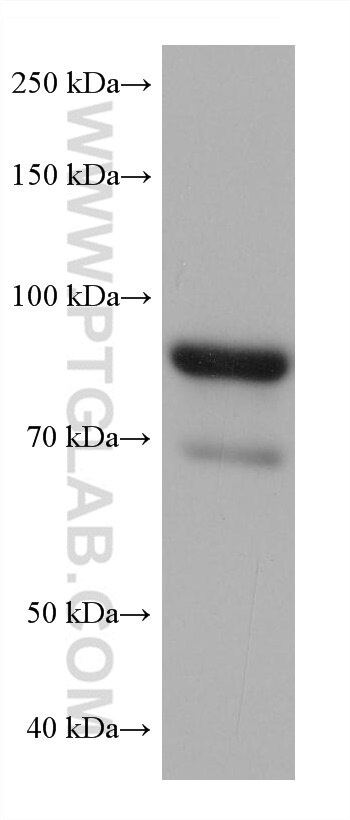- Phare
- Validé par KD/KO
Anticorps Monoclonal anti-ESYT2
ESYT2 Monoclonal Antibody for WB, ELISA
Hôte / Isotype
Mouse / IgG1
Réactivité testée
Humain
Applications
WB, ELISA
Conjugaison
Non conjugué
CloneNo.
1B12G2
N° de cat : 68374-1-Ig
Synonymes
Galerie de données de validation
Applications testées
| Résultats positifs en WB | cellules HeLa, cellules A549, cellules HEK-293, cellules HL-60, cellules Jurkat, cellules K-562, cellules LNCaP, cellules U2OS |
Dilution recommandée
| Application | Dilution |
|---|---|
| Western Blot (WB) | WB : 1:5000-1:50000 |
| It is recommended that this reagent should be titrated in each testing system to obtain optimal results. | |
| Sample-dependent, check data in validation data gallery | |
Informations sur le produit
68374-1-Ig cible ESYT2 dans les applications de WB, ELISA et montre une réactivité avec des échantillons Humain
| Réactivité | Humain |
| Hôte / Isotype | Mouse / IgG1 |
| Clonalité | Monoclonal |
| Type | Anticorps |
| Immunogène | ESYT2 Protéine recombinante Ag20440 |
| Nom complet | family with sequence similarity 62 (C2 domain containing) member B |
| Masse moléculaire calculée | 921 aa, 102 kDa |
| Poids moléculaire observé | 90-100 kDa |
| Numéro d’acquisition GenBank | BC013957 |
| Symbole du gène | FAM62B |
| Identification du gène (NCBI) | 57488 |
| Conjugaison | Non conjugué |
| Forme | Liquide |
| Méthode de purification | Purification par protéine G |
| Tampon de stockage | PBS avec azoture de sodium à 0,02 % et glycérol à 50 % pH 7,3 |
| Conditions de stockage | Stocker à -20°C. Stable pendant un an après l'expédition. L'aliquotage n'est pas nécessaire pour le stockage à -20oC Les 20ul contiennent 0,1% de BSA. |
Informations générales
ESYT2, also named FAM62B, is one of the three-member family of Extended Synaptotagmins that were recently shown to be implicated in the formation of endoplasmic reticulum (ER)-plasma membrane (PM) junctions and in the Ca(2+) dependent regulation of these junctions.
Protocole
| Product Specific Protocols | |
|---|---|
| WB protocol for ESYT2 antibody 68374-1-Ig | Download protocol |
| Standard Protocols | |
|---|---|
| Click here to view our Standard Protocols |





